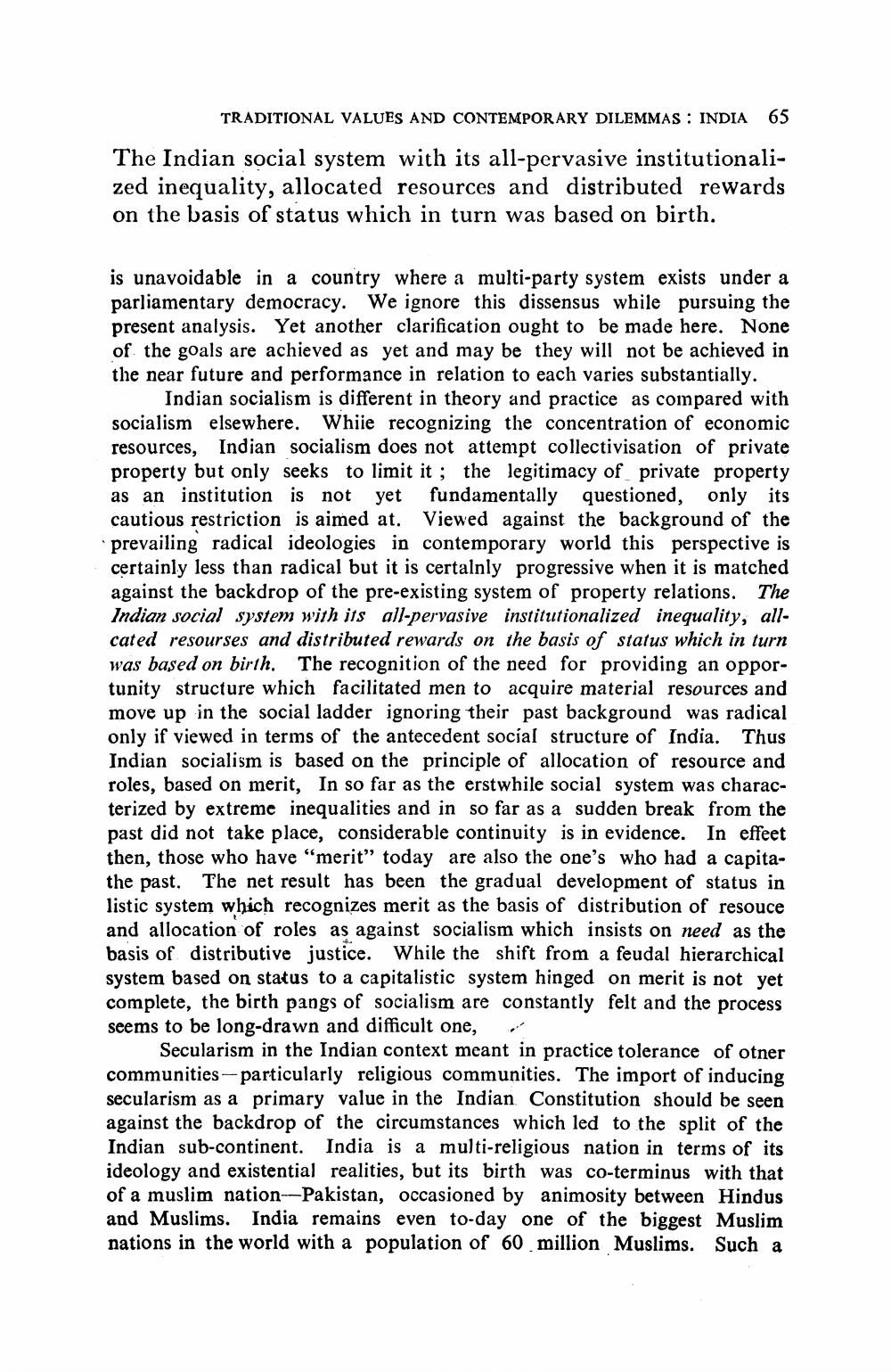Book Title: Traditional Values And Contemporary Dilemmas India Author(s): T K Oommen Publisher: T K Oommen View full book textPage 5
________________ TRADITIONAL VALUES AND CONTEMPORARY DILEMMAS: INDIA 65 The Indian social system with its all-pervasive institutionalized inequality, allocated resources and distributed rewards on the basis of status which in turn was based on birth. is unavoidable in a country where a multi-party system exists under a parliamentary democracy. We ignore this dissensus while pursuing the present analysis. Yet another clarification ought to be made here. None of the goals are achieved as yet and may be they will not be achieved in the near future and performance in relation to each varies substantially. Indian socialism is different in theory and practice as compared with socialism elsewhere. While recognizing the concentration of economic resources, Indian socialism does not attempt collectivisation of private property but only seeks to limit it; the legitimacy of private property as an institution is not yet fundamentally questioned, only its cautious restriction is aimed at. Viewed against the background of the prevailing radical ideologies in contemporary world this perspective is certainly less than radical but it is certainly progressive when it is matched against the backdrop of the pre-existing system of property relations. The Indian social system with its all-pervasive institutionalized inequality, allcated resourses and distributed rewards on the basis of status which in turn was based on birth. The recognition of the need for providing an opportunity structure which facilitated men to acquire material resources and move up in the social ladder ignoring their past background was radical only if viewed in terms of the antecedent social structure of India. Thus Indian socialism is based on the principle of allocation of resource and roles, based on merit, In so far as the erstwhile social system was characterized by extreme inequalities and in so far as a sudden break from the past did not take place, considerable continuity is in evidence. In effeet then, those who have "merit" today are also the one's who had a capitathe past. The net result has been the gradual development of status in listic system which recognizes merit as the basis of distribution of resouce and allocation of roles as against socialism which insists on need as the basis of distributive justice. While the shift from a feudal hierarchical system based on status to a capitalistic system hinged on merit is not yet complete, the birth pangs of socialism are constantly felt and the process seems to be long-drawn and difficult one, Secularism in the Indian context meant in practice tolerance of otner communities particularly religious communities. The import of inducing secularism as a primary value in the Indian Constitution should be seen against the backdrop of the circumstances which led to the split of the Indian sub-continent. India is a multi-religious nation in terms of its ideology and existential realities, but its birth was co-terminus with that of a muslim nation-Pakistan, occasioned by animosity between Hindus and Muslims. India remains even to-day one of the biggest Muslim nations in the world with a population of 60 million Muslims. Such aPage Navigation
1 ... 3 4 5 6 7 8 9 10
